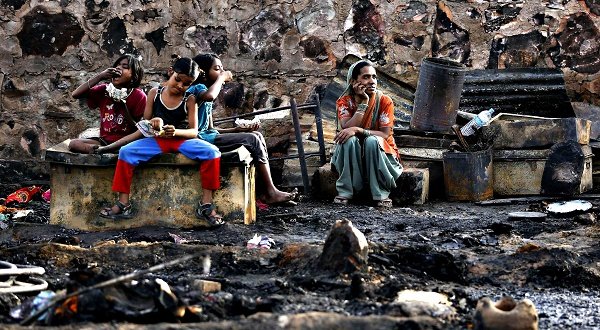
The involvement of citizen groups in the decision making process at the local level is essential for development and will make any project inclusive and participatory
SADIQ ZAFAR | Caravan Daily
[dropcap]T[/dropcap]he other day a news channel was broadcasting a report on hunger and malnutrition in India where it was showing a hungry child eating an undigested food picking it up from an animal’s excreta outside a garbage dump.
During the commercial break, the channel advertised Pedigree, a doggy biscuit for a healthy dog. Though no one is against the care and protection of animals and their rights but the subject between which the pedigree advertisement came was one of most sensitive issues related to the survival of human beings.

Thus the question arises, is this the level of our understanding and the sense of our responsibility towards issues such as poverty and hunger? The Maslow’s need hierarchy tells that the self-actualization level, the level at which an individual can contributes towards the society, can only be achieved when the physiological needs are fulfilled and in order to ensure the entitlement of citizenship, the responsibility of a welfare state is to provide food, shelter, primary health, education and other basic amenities. But due to the lack of fiscal availability, needs at the grass-root level of the society are not yet fulfilled.
Developing countries lag in fiscal resources, whereas to achieve the goals and targets set by the Sustainable Development Goals (SDG), a large amount of investment is required. SDG aims to attain fiscal sustainability and stability, in terms of allocation of resources and provision of better living condition of the people, in order to achieve equilibrium in the society. People in slums are dwelling in unhealthy and inhabitable living conditions.
As the internal rate of return (IRR) comes out to be negative in most of the cases, projects related to the improvement of slums are less profitable, that’s why private players stay away from such kind of projects and the welfare state does not have enough fund to carry out these projects of social cause on its own. In these conditions, the role of institutions like Ministry of Finance dealing with economic affairs is critically important as it can allocate funds to provide fiscal stability to a state to carry out many development projects which are for the common good.
One of the scenarios to understand the existence of deteriorating living conditions of slums, let’s take a slum or any inhabitable residential pocket from any peri-urban area. Because of it being out of the municipal jurisdiction, urban development funds dedicated for the development of urban areas cannot be used for the development and improvement purposes in such fringes and being in the periphery of an urban area, rural development agencies hardly think about the improvement and development of such areas which are supposed to be urbanized nearly. Other issues which can be easily traced in slums are related to spatial planning.
Because of the high density of population and compact built environment of such neighborhoods, infrastructure facilities can’t be laid properly, distancing the neighborhood from basic amenities. Shanty structures, open defecation and open unchecked drains are some of the contributors of the unfit living conditions resulting in infant mortality, illness and other health issues affecting the overall growth of the dwellers especially women and children.
The need is to identify marginalized and vulnerable sections of the society and to work on the capacity-building of such gentrified population so as to make them self-efficient and resilient, bringing them in the mainstream of the social fabric. Basic issues related to sanitation and health needs to be addressed so as to make the slum dwellers capable of overcoming the unhygienic conditions.
Governance issues also need to be addressed so as to decentralize the whole democratic structure, devolution and delegation of power in true sense and to make it people-centric. At the neighborhood level, the need is to form citizen groups so as to observe the strength, weakness, opportunity and threat conditions and then the findings should be consolidated and transferred to the higher level of the structure where a draft proposal should be made.
Dwellers should be identified and acknowledged as one of the stakeholders of the project and should be taken in confidence before carrying out any development or improvement scheme. Then this draft proposal of improvement scheme should be submitted to the state agency and after the approval, funding agencies dealing with the economic affairs may be contacted for the investment purpose of the project.
The involvement of citizen groups in the decision making process at the local level will make any project inclusive and participatory. Things which are to be executed at the down to earth level, give peace and strength to the existing social fabric of the society.

